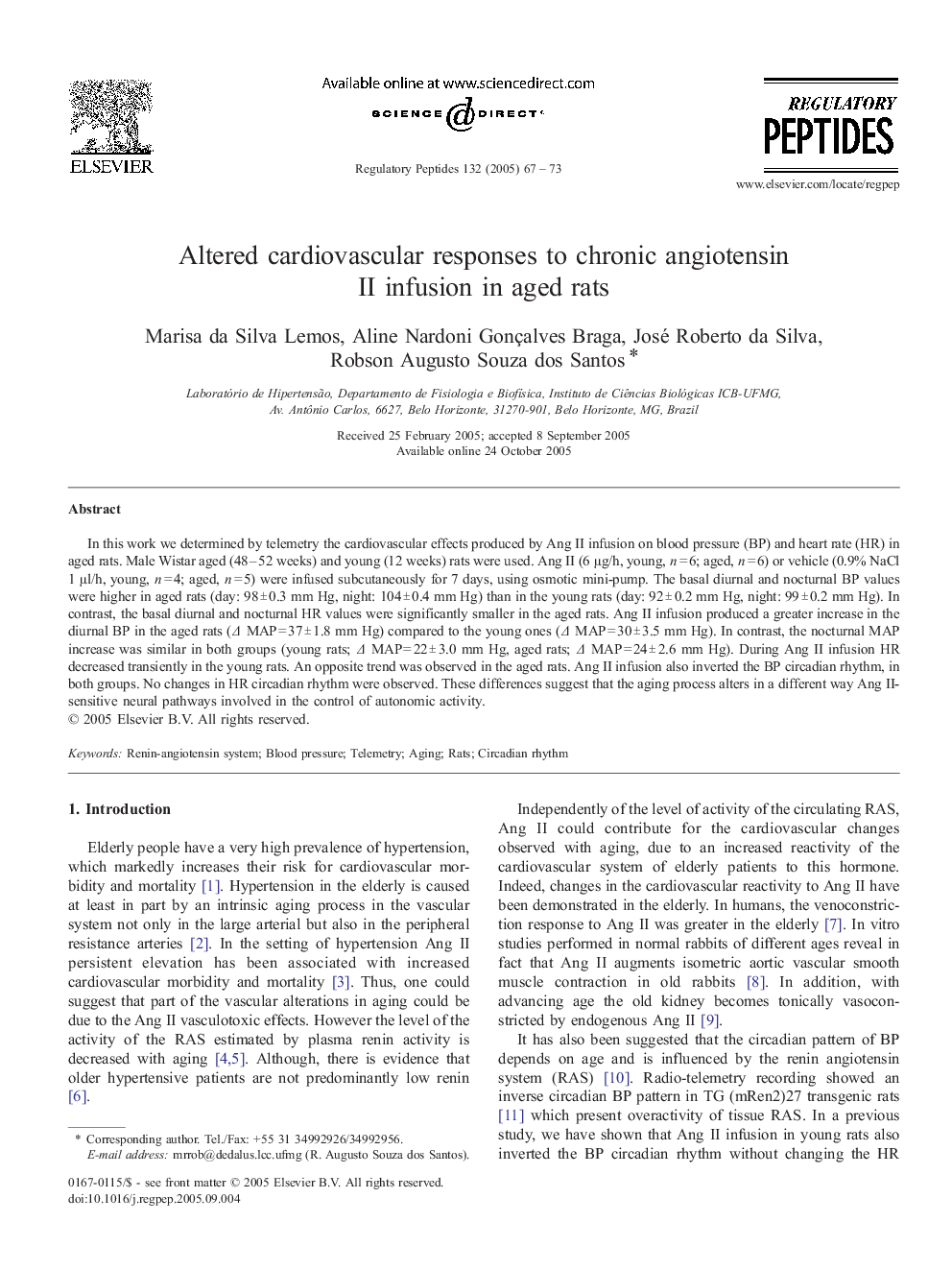| Article ID | Journal | Published Year | Pages | File Type |
|---|---|---|---|---|
| 9894352 | Regulatory Peptides | 2005 | 7 Pages |
Abstract
In this work we determined by telemetry the cardiovascular effects produced by Ang II infusion on blood pressure (BP) and heart rate (HR) in aged rats. Male Wistar aged (48-52 weeks) and young (12 weeks) rats were used. Ang II (6 μg/h, young, n = 6; aged, n = 6) or vehicle (0.9% NaCl 1 μl/h, young, n = 4; aged, n = 5) were infused subcutaneously for 7 days, using osmotic mini-pump. The basal diurnal and nocturnal BP values were higher in aged rats (day: 98 ± 0.3 mm Hg, night: 104 ± 0.4 mm Hg) than in the young rats (day: 92 ± 0.2 mm Hg, night: 99 ± 0.2 mm Hg). In contrast, the basal diurnal and nocturnal HR values were significantly smaller in the aged rats. Ang II infusion produced a greater increase in the diurnal BP in the aged rats (ΠMAP = 37 ± 1.8 mm Hg) compared to the young ones (ΠMAP = 30 ± 3.5 mm Hg). In contrast, the nocturnal MAP increase was similar in both groups (young rats; ΠMAP = 22 ± 3.0 mm Hg, aged rats; ΠMAP = 24 ± 2.6 mm Hg). During Ang II infusion HR decreased transiently in the young rats. An opposite trend was observed in the aged rats. Ang II infusion also inverted the BP circadian rhythm, in both groups. No changes in HR circadian rhythm were observed. These differences suggest that the aging process alters in a different way Ang II-sensitive neural pathways involved in the control of autonomic activity.
Related Topics
Life Sciences
Biochemistry, Genetics and Molecular Biology
Biochemistry
Authors
Marisa da Silva Lemos, Aline Nardoni Gonçalves Braga, José Roberto da Silva, Robson Augusto Souza dos Santos,
